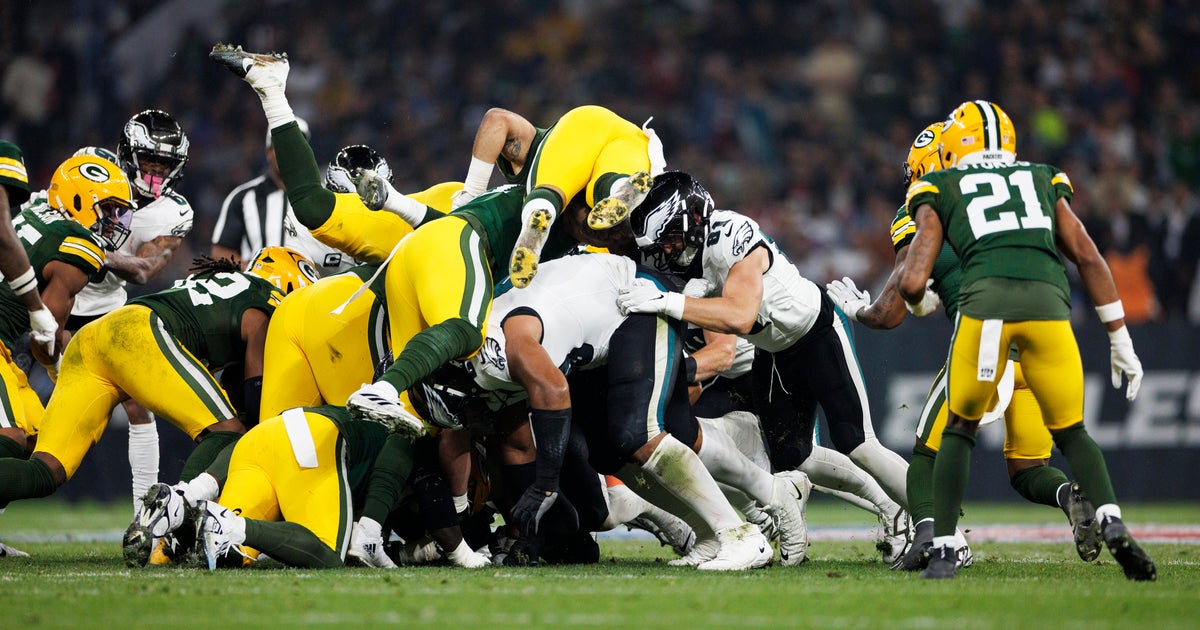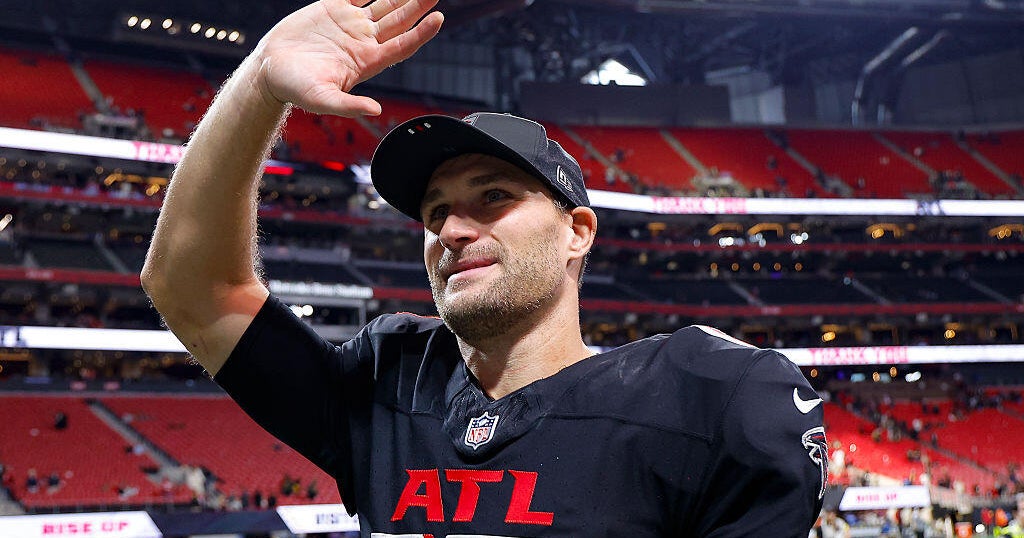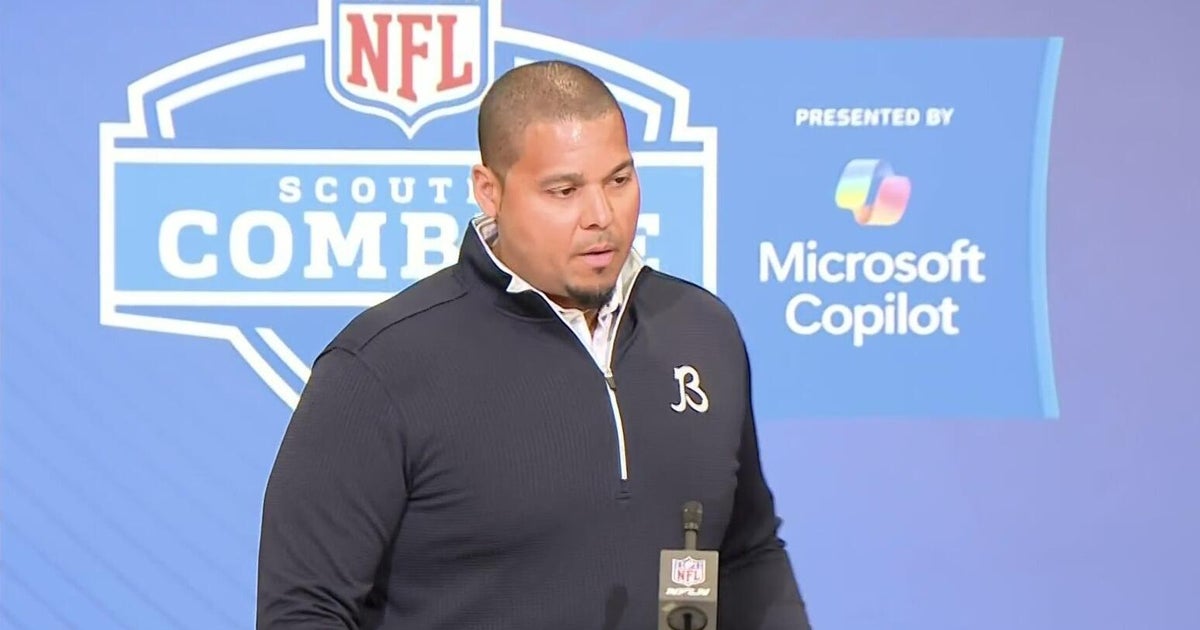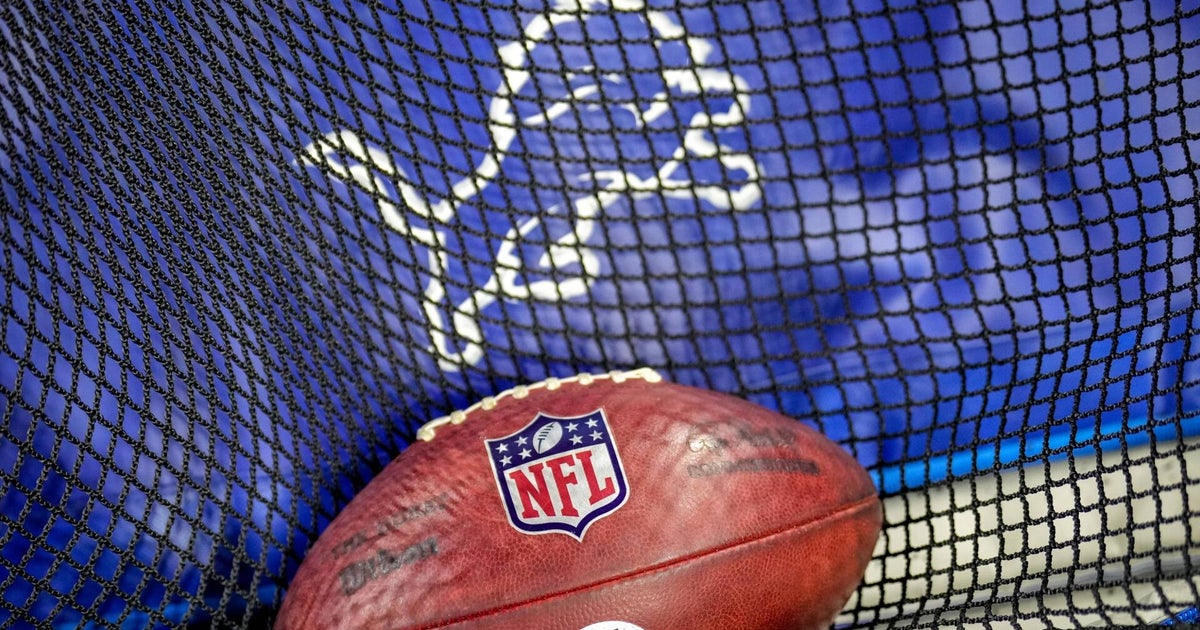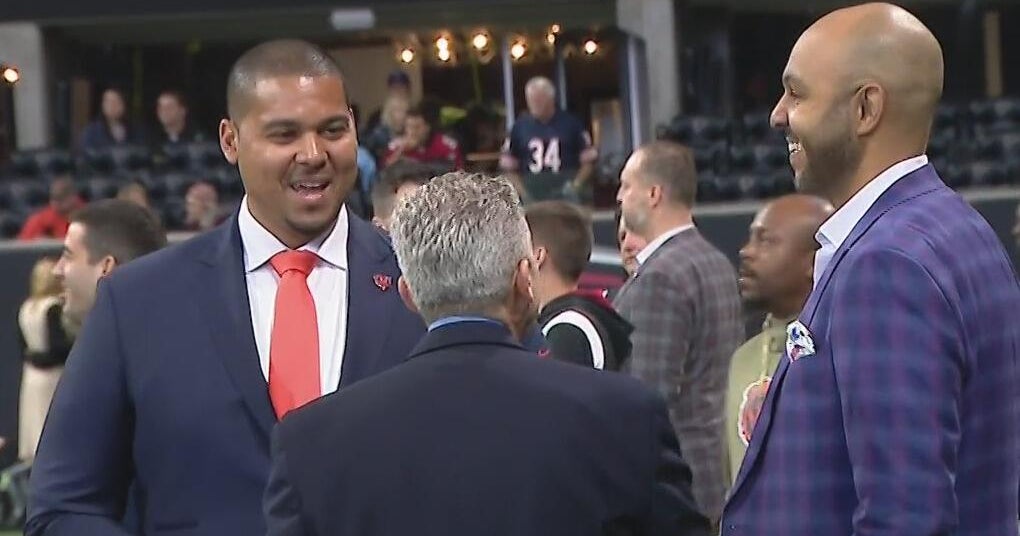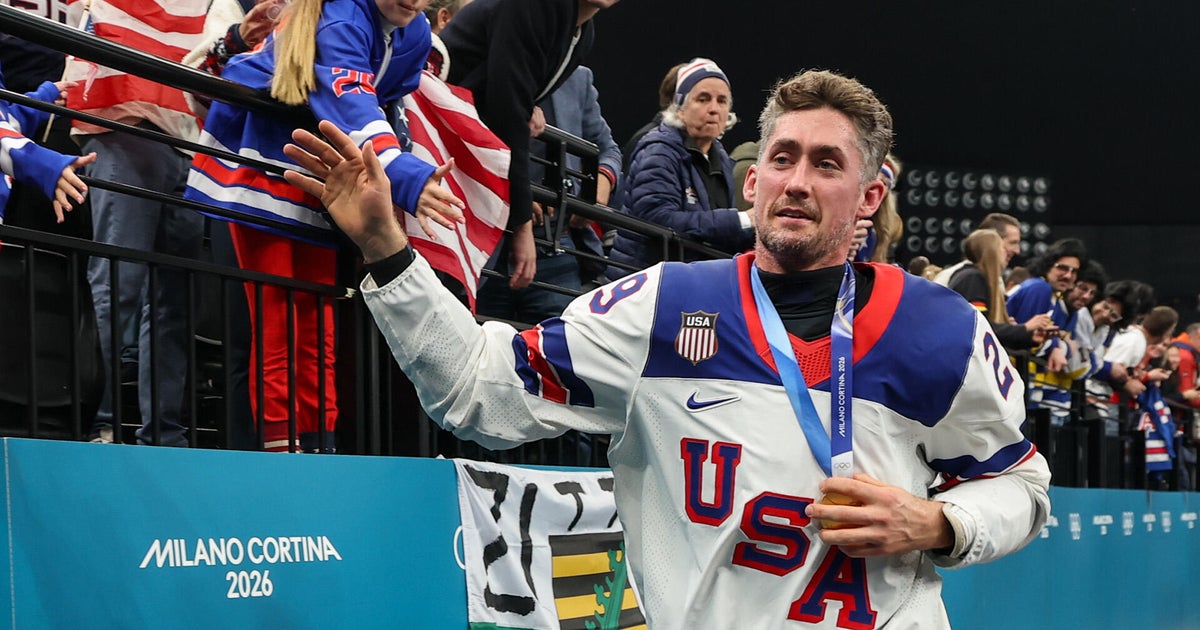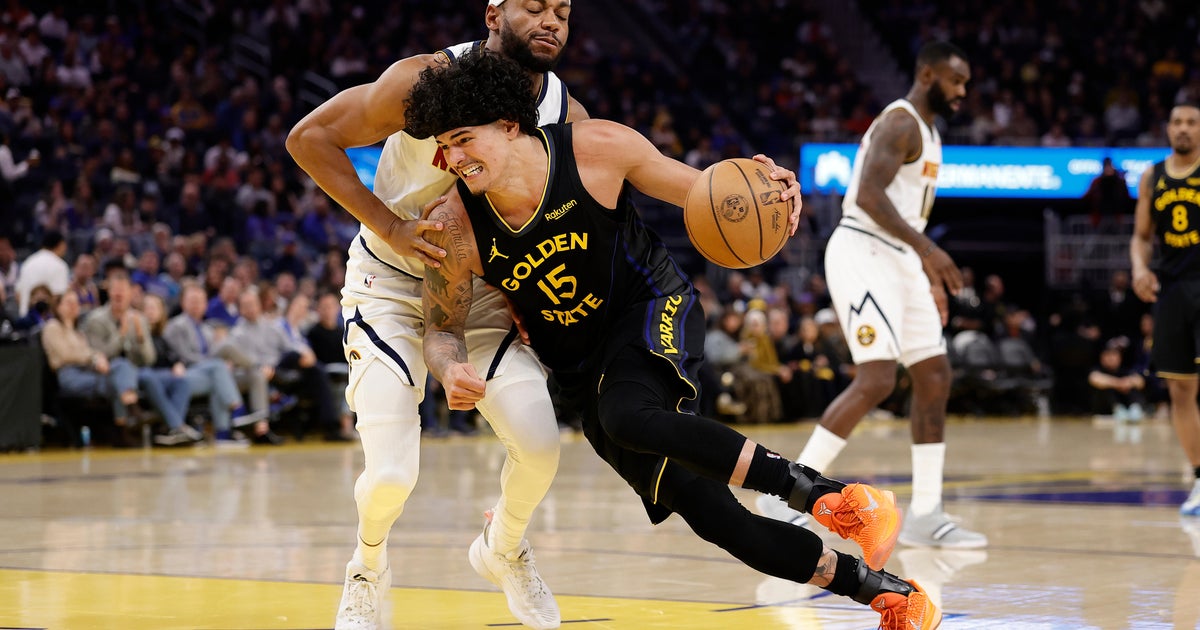Hurley: Ultimately, Patriots Relied Too Heavily On Tom Brady
By Michael Hurley, CBS Boston
BOSTON (CBS) -- Tom Brady is the best player on the Patriots. He is the best quarterback in the NFL. He may be the greatest quarterback of all time.
It makes sense, then, that the Patriots rested their Super Bowl 50 hopes and dreams on the shoulders of the man who's carried them so many times before.
But football remains the ultimate team sport, one far too chaotic to rely solely on one individual's skills. The 2015 Patriots and Tom Brady serve as just the latest reminder of that ever-present reality.
The warning signs that the Patriots were putting too much on Brady's shoulders popped up steadily throughout the season. In early December, prior to the Patriots' Week 14 game in Houston, I noted that the Patriots were asking too much of their quarterback -- at least as far as history was concerned. At that point, Brady was on pace to throw 676 passes. In fact, he ended up throwing 624, the third-highest single-season total of his career.
Brady's 2015 season became the 49th in NFL history with 600 or more pass attempts.The only other QBs to attempt 600 or more passes this season were Philip Rivers (661), Drew Brees (627), Eli Manning (618), Matt Ryan (614) and Blake Bortles (606). The combined record of those quarterbacks' teams was 30-50.
Of the 49 quarterbacks with 600 or more pass attempts, exactly zero have won Super Bowls. In fact, only four QBs have made the Super Bowl. The 600-plus passers own an 18-21 postseason record, and 27 of them were on teams that failed to even make the playoffs.
(This year's Super Bowl matchup features Cam Newton, who threw just 496 passes, against Peyton Manning, whose midseason sabbatical led to just 331 pass attempts. It should be noted that Manning and Brock Osweiler combined to throw 606 passes. Also, Newton is obviously a unique case, with his 132 rushing attempts for 636 yards and 10 rushing touchdowns.)
None of this is to say that 600 is some magic bullet of a number or that as soon as a quarterback releases pass No. 600 on the year, the season is instantly doomed. The 2013 Broncos lost the Super Bowl because Seattle demolished them for 60 minutes, not because Manning threw a league-high 659 passes that season. The 2011 Patriots lost the Super Bowl because Wes Welker picked a bad time to suffer from the dropsies, not because Brady threw 611 passes during the regular season. And Drew Bledsoe's 623 pass attempts in 1996 didn't prevent the Patriots from covering a kickoff in the Super Bowl against Green Bay.
Yet, a quarterback throwing 600 passes is an indication that the offense is not balanced -- not even a little bit. While the importance of a running game has lessened significantly over the past decade or so, it still must exist in some fashion.
Look a this year's Super Bowl teams in comparison to the Patriots. The Panthers ranked No. 1 in the NFL in rushing attempts (526) and rushing yards (2,282), while the Broncos ranked 17th in both categories (411 rushes for 1,718 yards). With 383 carries for 1,404 yards, the Patriots ranked 25th in attempts and 30th in yards. They were also 29th in yards per attempt.
Or, for an example that's perhaps more appropriate, just look at the 2014 Patriots compared to this year's team. Though Brady was still relied upon to carry the team last year, he only threw 582 passes -- 42 fewer than 2015. That's in large part to the Patriots' willingness to actually run the ball in 2014, when they rushed 438 times for 1,727 yards.
Those are hardly gargantuan numbers, as they ranked 18th in yards and 13th in attempts, but it was a sign that a running game existed. This year, with 55 fewer carries for 323 fewer yards, the running game was nowhere to be found.
The reasons for that disappearance are varied. For one, the first half of the year saw three rookies (Shaq Mason, David Andrews, Tre' Jackson) along with third-year guard Josh Kline play the bulk of snaps, until second-year center Bryan Stork rejoined the mix later in the year. In terms of learning on the fly, it can be more difficult for rookies and inexperienced players to pick up advanced run-blocking schemes than it is to ask them to pass block. (Though, the fact that no evolution took place over the course of the season could help explain Dave DeGuglielmo's firing this week.)
Injuries also didn't help. The Patriots had their bell cow in LeGarrette Blount from Weeks 2-14 before his season was cut short in December, around the time of year when Blount has really stepped up in past seasons. And Dion Lewis' injury in Week 9 took the second option off the field for the rest of the season. Brandon Bolden really isn't a ball carrier, nor is James White. As a result, the Patriots player with the fourth-most carries this season was ... Tom Brady. That hasn't happened since 2011.
Despite those injuries, dedicating a little more energy to the running game was certainly possible. To match last year's numbers, for example, the Patriots would have had to rush the ball three or four more times for about 20 more yards per week. Even with the roster situation, does that really seem impossible? Was the 54-to-5 ratio of passes-to-handoffs really necessary in Week 7 vs. the Jets? Did the Patriots really need to have Brady throw 54 passes in Week 2 in Buffalo, when running backs had just 10 carries all game and the Patriots held a comfortable lead for most of the afternoon?
The Patriots' running game was by no means great, but it also was never really given a chance.
Considering Brady was 37 years old this season, it's not exactly great timing for the Patriots to be relying on the quarterback almost exclusively in order to score points. And with Julian Edelman, Rob Gronkowski and Danny Amendola all missing time in the latter half of the year, even more was asked of Brady, who had to do more with less.
And in the end, that completely one-sided offensive approach proved to be their undoing in Denver. With literally no threat of a running game to worry about, and with crowd noise dictating a predictable silent count, the Broncos' defensive line teed off on the offensive line and created a living nightmare for Brady. Excluding Brady's 13 rushing yards, the Patriots ran for 31 yards on 14 carries in the AFC Championship Game.
For Brady to have managed to throw for 310 yards despite getting hit 25 times, and for Brady to have actually given his team a legitimate shot at tying the game in the final seconds is exactly why the Patriots, Josh McDaniels and Bill Belichick felt comfortable in leaning on him this year. With a young interior line, with no player really capable of springing loose on a game-changing run, and with receivers dropping due to injuries as the year wore on, who better to shoulder the load than the greatest quarterback of all time?
But even Tom Brady can't do it all. As his wife once famously said, he cannot throw the ball and catch the ball at the same time. To add to that, he can't block pass rushers, and he can't make the threat of a running game appear out of thin air. In fact, if you hit him enough, he bleeds like the rest of us mere mortals.
No quarterback in the history of the NFL has ever been able to single-handedly carry his team to a championship. Brady and the Patriots are just the latest to learn that lesson the hard way.
You can email Michael Hurley or find him on Twitter @michaelFhurley.
